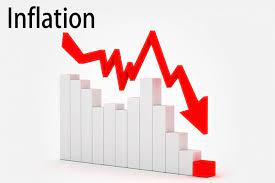Nigeria’s headline inflation rate eased to 18.02 per cent in September compared to 20.12 per cent in August 2025, indicating the sixth consecutive month of deceleration in inflation.
This was disclosed by the National Bureau of Statistics in the latest Consumer Price Index published on Wednesday. This also marked the first time in three years that inflation had fallen below the 20 per cent threshold.
The rebasing of the CPI has been a driver of the decline in inflation this year, which has resulted in the first rate cut by the Monetary Policy Committee of the Central Bank of Nigeria in years. The sustained dip in inflation supports the projection by economists that the MPC may still cut the benchmark rate.
According to NBS, the September 2025 headline inflation rate decreased by 2.1 per cent compared to the previous month. On a year-on-year basis, the headline inflation rate was 14.68 per cent lower than the rate recorded in September 2024 (32.70 per cent), marking a decrease compared to the same month in the preceding year.
“However, on a month-on-month basis, the headline inflation rate in September 2025 was 0.72 per cent, which was 0.02 per cent lower than the rate recorded in August 2025 (0.74 per cent). This means that in September 2025, the rate of increase in the average price level was lower than the rate of increase in the average price level in August 2025,” disclosed part of the report.
The food inflation rate in September 2025 was 16.87 per cent on a year-on-year basis. This was 20.9 percentage points lower compared to the rate recorded in September 2024 (37.77 per cent).
NBS said that “The significant decline in the annual food inflation figure is technically due to the change in the base year.
However, on a month-on-month basis, the food inflation rate in September 2025 was -1.57 per cent, down by 3.22 per cent compared to August 2025 (1.65 per cent). The decrease can be attributed to the rate of decrease in the average prices of maize (corn) grains, garri, beans, millet, potatoes, onions, eggs, tomatoes, fresh pepper, etc.”
Core inflation, which is all items less farm produce and energy, stood at 19.53 per cent in September 2025. On a year-on-year basis, it declined by 7.9 per cent when compared to the 27.43 per cent recorded in September 2024.
On a month-on-month basis, the core inflation rate was 1.42 per cent in September 2025, down by 0.01 per cent compared to August 2025 (1.43 per cent). The average 12-month annual inflation rate was 22.39 per cent for the 12 months ending September 2025, which was 3.25 percentage points lower than the 25.64 per cent recorded in September 2024.
Urban inflation inched up month-on-month by 0.25 per cent to 0.74 per cent from 0.49 per cent in August. However, on a year-on-year basis, it stood at 17.50 per cent, which is about 17.63 percentage points lower compared to September 2024.
The rural inflation rate in September 2025 dipped on a yearly and monthly basis. It stood at 18.26 per cent (yearly) and 0.67 per cent (monthly).
At the state level, the headline inflation rate on a year-on-year basis was highest in Adamawa (23.69 per cent), Katsina (23.53 per cent), and Nasarawa (22.29 per cent), while Anambra (9.28 per cent), Niger (11.79 per cent), and Bauchi (12.36 per cent) recorded the lowest rise in headline inflation on a year-on-year basis. On a month-on-month basis, however, NBS said the highest increases were recorded in Zamfara (9.36 per cent), Adamawa (8.15 per cent) and Nasarawa (7.49 per cent), while Niger (-8.14 per cent), Oyo (-5.56 per cent) and Bayelsa (-4.61 per cent) recorded a decline.
Year-on-year, food inflation was highest in Ekiti (28.68 per cent), Rivers (24.18 per cent), and Nasarawa (22.74 per cent), while Bauchi (2.81 per cent), Niger (8.38 per cent), and Anambra (8.41 per cent) recorded the slowest rise. On a month-on-month basis, food inflation was highest in Zamfara (15.62 per cent), Ekiti (12.77 per cent), and Sokoto (12.55 per cent) and lowest in Akwa Ibom (-12.97 per cent), Borno (-12.95 per cent), and Cross River (-10.36 per cent).
Ahead of the release of the inflation data, the Senior Research Analyst at FXTM, Lukman Otunuga, had projected an easing in the inflation to 18.8 per cent.
He had pegged his projection on “A combination of softer food prices and a strengthening naira may have tamed price pressures. Further signs of cooling price pressures may pave the way for further rate cuts by the CBN in November to stimulate economic growth.”
The experts at Arthur Steven Asset Management also affirmed the sentiments that the MPC may cut rates at its last meeting of the year, saying, “Nigeria’s inflation eased to 18.02 per cent in September, marking the sixth consecutive month of decline following the 50 bps MPR rate cut in September. The sustained disinflation trend strengthens expectations of a possible further rate reduction at the next MPC meeting in November.”
AIICO Capital, in their Inflation Watch, said that the decline in inflation reflects the positive impact of recent government policy reforms.
“Notably, the Consumer Price Index was rebased earlier in the year to a new 2024 base year with an updated basket of goods, contributing to the sustained moderation in inflation. In addition, energy prices and the FX rate have remained stable, with the naira appreciating by 2.9 per cent in September 2025, its strongest level in 15 months. Encouragingly, both annual and monthly inflation have trended downward, easing immediate price pressures.
“Furthermore, following the Monetary Policy Committee’s decision to cut the benchmark interest rate by 50 basis points to 27 per cent in September, the sharp decline in inflation, now approaching the 15 per cent budget benchmark, signals the possibility of further rate cuts in the Monetary Policy Rate before year-end. However, sustaining lasting price stability will require consistent policy discipline, strengthened food security measures, and continued stability in energy prices to guard against renewed volatility.”































